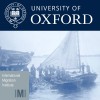THEMIS: Beyond migrant lives: The rise and fall of meso-level actors
This paper examines the migration from East European countries to Portugal as a particular pattern of the named `southern European model´ (Baldin-Edwards, 1999; King, 2000). It discusses this sub-system through the analysis of the emergence, development and decline of migratory dynamics.
Biographic interviews to physicians and nurses coming from Russia Federation, Moldova and Ukraine to Portugal are explored in order to sustain the debate. These non-EU citizens arrived in Portugal without their credentials recognised before they left their country of origin; as a consequence, they do not benefit from any professional, organizational, or supra-national framework.
The analysis of the East European doctors and nurses’ pioneer paths into the Portuguese Health Service underlines the importance of multi-level actors: either as service providers (e.g. of language courses, of training programs), as bridge-builders of social capital, as mentors for newcomers or as gatekeepers.
The biographic approach of this study allows perceiving the role of the initial movers on the sustainability of the flows. Moreover, it contributes to emphasize the range of mechanisms that is on inter-play over time, namely, the ones resulted from the interactions with state institutions, employers, educational establishments, professional associations, NGO´s, Foundations, migrants fellows.
This paper argues for the need to overcome the structure/agency divide on the (re)valuation of the migratory dynamics.




